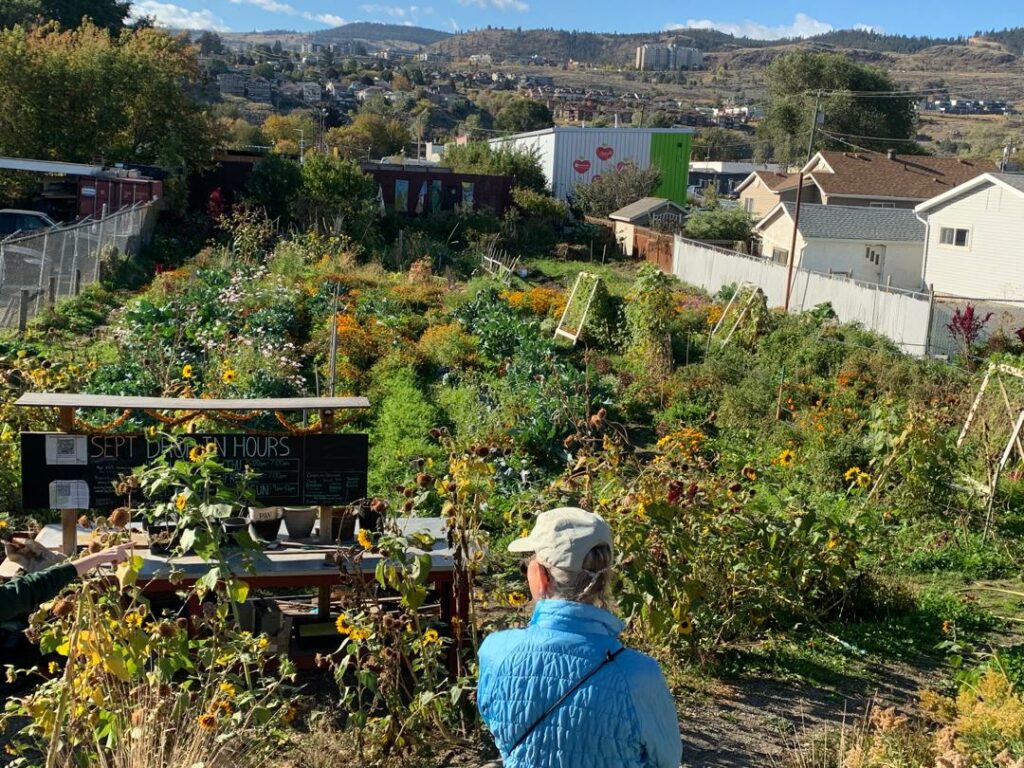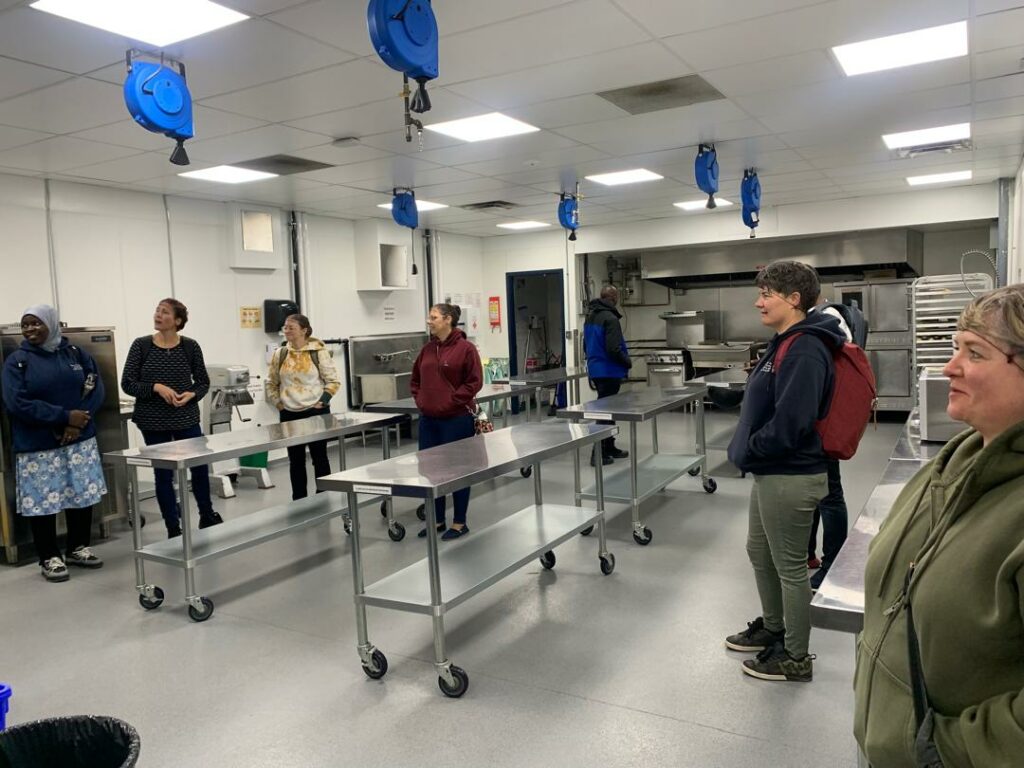- HRSJ 5010 Foundations of Human Rights and Social Justice
- HRSJ 5020 Indigenous Ways of Knowing: Resurgence of Land-Based Pedagogies and Practices
- HRSJ 5030 Problem Solving in the field
- HRSJ 5110 Genocide
- HRSJ 5130 Body Rights
- HRSJ 5150 Truth to Power
- HRSJ 5230 Emergence of Global Capitalism
- HRSJ Food, Art, and Community Empowerment
Highlight
Reflecting on the courses I have taken so I do believe they have been so life changing to me on a personal level as most of the concepts I have managed to learn on have answered a couple of some critical issues on how the world is currently functioning and answered some questions from previous events. The Genocide course and the Indigenous Ways of Knowing: Resurgence of Land-Based Pedagogies and Practices courses have been both enlightening and challenging and has deepened my understanding of the enduring impacts of colonialism on Indigenous communities.
In learning about the history about the indigenous people of Canada, a totally new and harrowing historic event that was totally alien to me considering that it is not even part of any text or learning context from any African textbooks considering we have learnt nearly everything about the Asian history, the European history and the American history growing up and nothing on this.
Through these courses I got to understand the impacts of how such institutions and practices exist globally with settler colonial governments employing education and social policies as tools for cultural control and assimilation. Not only have these systems caused severe generational trauma, loss of culture but also long-term socio-economic repercussions.
These courses have been instrumental in highlighting the resilience of indigenous communities that have survived, resisted, and adapted from the efforts to erase their identities. The knowledge I gained from these classes has aided me in my area of work that I now desire to engage more in, which is advocating for disadvantaged groups that have been affected by systemic prejudices. My studies have reinforced the understanding that supporting justice means amplifying voices and recognizing the rights of everyone, language, and practices.
Below is a video from the 2023 National day of Truth and Reconciliation commemorations at Thompson Rivers University
2023 National day of Truth and Reconciliation: TRU
HRSJ 5710 Food, Art and Community Empowerment

As an individual who was once involved in farming before, the insights of community gardens and food banks have created a light bulb moment that I believe can be instrumental in alleviating the food crisis in my community and many other communities back home.
Reflecting on the Food, Art and community empowerment course, the experience has been enlightening and highly informative, especially as it has offered an in-depth insight on the intersection of food systems and human rights and social justice in societies. Coming from Zimbabwe were food insecurity and food access is highly impacted by economic and political factors the sight of community gardens and food banks in action has provided a lot of tangible and practical understanding to my learning. Community based food initiatives may be the right way to empower and create self-sustaining solutions.
We must occupy the food system to create food democracyVandana Shiva
As part of our learning experience, we had field trips around Kamloops, mostly to community gardens and food banks around the city. Observing functioning community gardens has shown light on how collective food growing projects provide immediate food security that benefits people and fosters a sense of community ownership. Unlike in Zimbabwe where agricultural practices are often seen on a large or commercial scale, the community garden model provides a more local intimate accessible space for people to directly produce their own food. It is relative to note that those who have small pieces of land only do subsistence type of farming only.
In community gardens, individuals from diverse backgrounds come together with a shared goal of producing food and nurturing the land. This involvement creates a sense of agency, giving the people power to contribute to their own sustenance. Food justice does not only encompass access to, but also empowerment of people to have control of their own food sources. Community gardens could benefit a lot of communities while alleviating food security in a very sustainable way.
In Zimbabwe where the aspect of ‘Ubuntu’ communal support exists, the idea of food banks aligns well with the values of sharing resources in times of need. The existence of food banks goes way beyond food being a mere commodity, it is a fundamental human right. By providing access to food regardless of one’s circumstance, food banks reinforce the principle that everyone deserves basic sustenance. This realization has strengthened my understanding of food justice within the framework of social justice. This actually raises important questions on how similar models can be adopted to the Zimbabwean context to support vulnerable populations and reducing the reliance on external aid, which in term is usually used by the government to control people.

The food, art and community empowerment course provided me the insight into the importance of viewing food systems through the lens of human rights. Food security is always viewed from technical lenses that require logistical solutions but the insight in this is that the issue is intertwined with dignity, justice and empowerment. Ultimately the course showed me that food justice is more than just food, it is a system that empowers people and respects rights and honors people’s dignity.
HRSJ 5230 Emergence of Global Capitalism
The emergence of global capitalism course was also an insightful aspect of the program in dissecting the way the functions from the capitalistic point of view as many structures shape our world and influence human rights and social justice. The course was very intuitive in tracing the development of capitalism from local markets to a worldwide system. Understanding the way capitalism has evolved over the years gives a very good insight into understanding the economies, social structures and cultures that exist globally. Seeing capitalism as a systemic and historical force rather than an economic model that is inevitable adds a lot of contexts to the inequalities that exist across the world.
One key element that the course brought up was the intersection of colonialism and imperialism. It brought out more into detail how European powers expanded across the oceans, as they established trade routes, exploited labor and extracted resources which fed the capitalistic system in the West while those in the global south and other areas were left impoverished colonized regions. Understanding this can offers a good perspective on the modern inequalities, as most of the wealth of some nations is not even due to efficiency or merit but rather to a history of exploitation and enforced structures that only benefitted one group another.
Moving forward, as people who are advocating for equality and alleviating the problems nations who have been victims of capitalism are facing, we need to start promoting fair trade and ethical consumerism. Many nations in the global south are still facing the same systematic environment through modern day colonialism that is happening through the disguise of loans and trade agreements. Individual actions are important but there must be systematic change that requires broader policy reforms, this can be done through supporting policymakers who prioritize social welfare and fight against exploitative practices. Curbing the capitalistic system and supporting nations that have been affected by the effects of colonialism requires a multifaceted approach that involves all hands to be on board, from individual actions to structural changes. Challenging capitalism is a huge task but through awareness, supporting reparative actions and advocating for sustainable alternatives are actions towards creating systemic change.